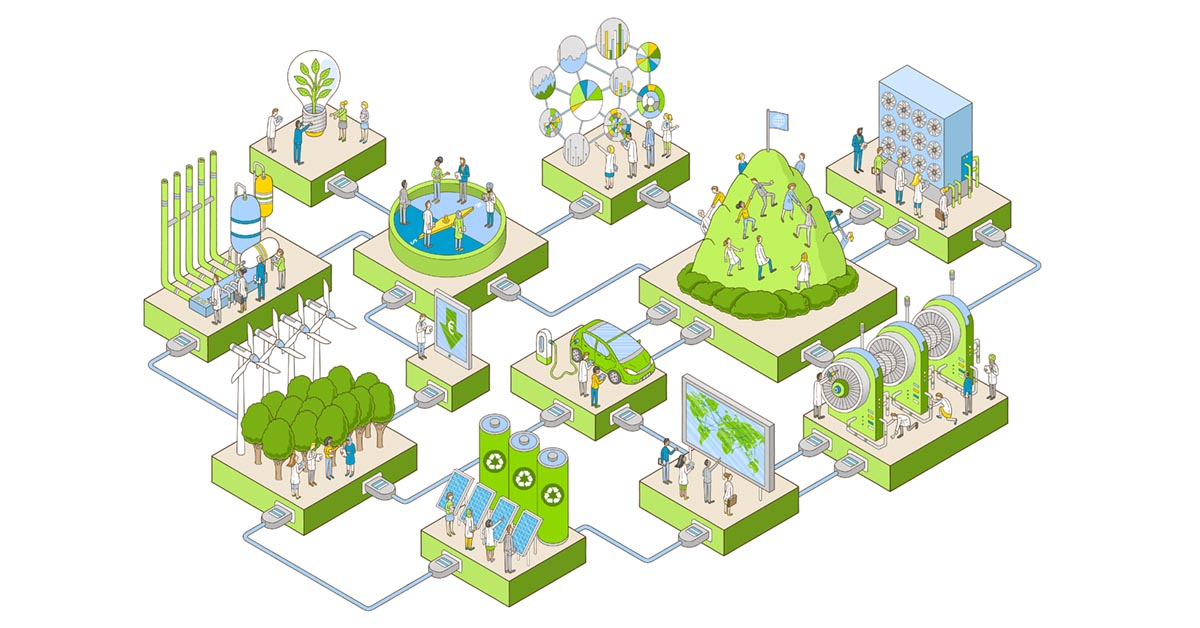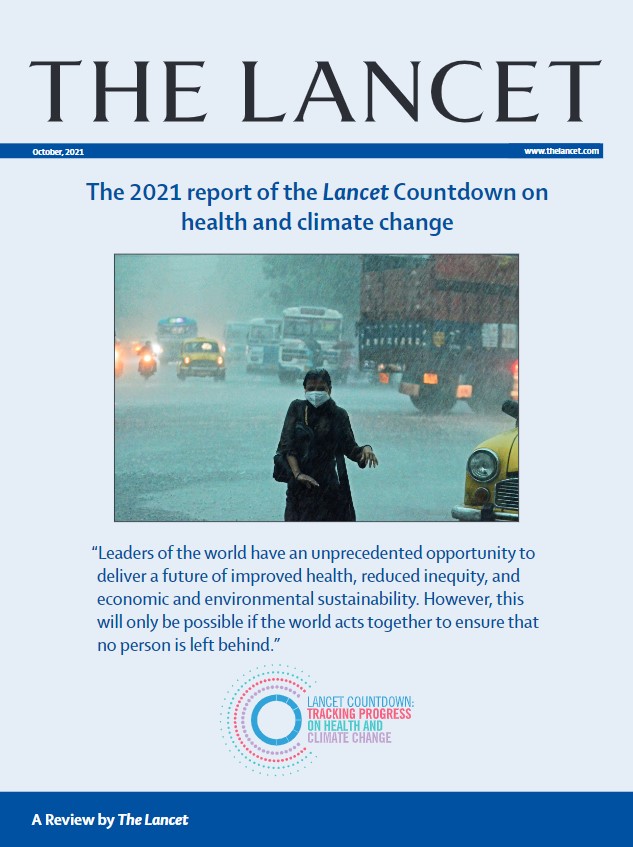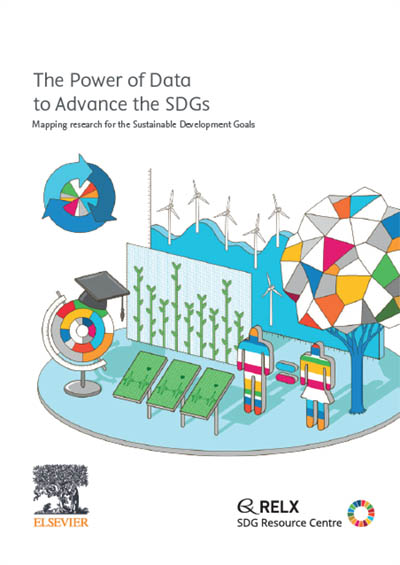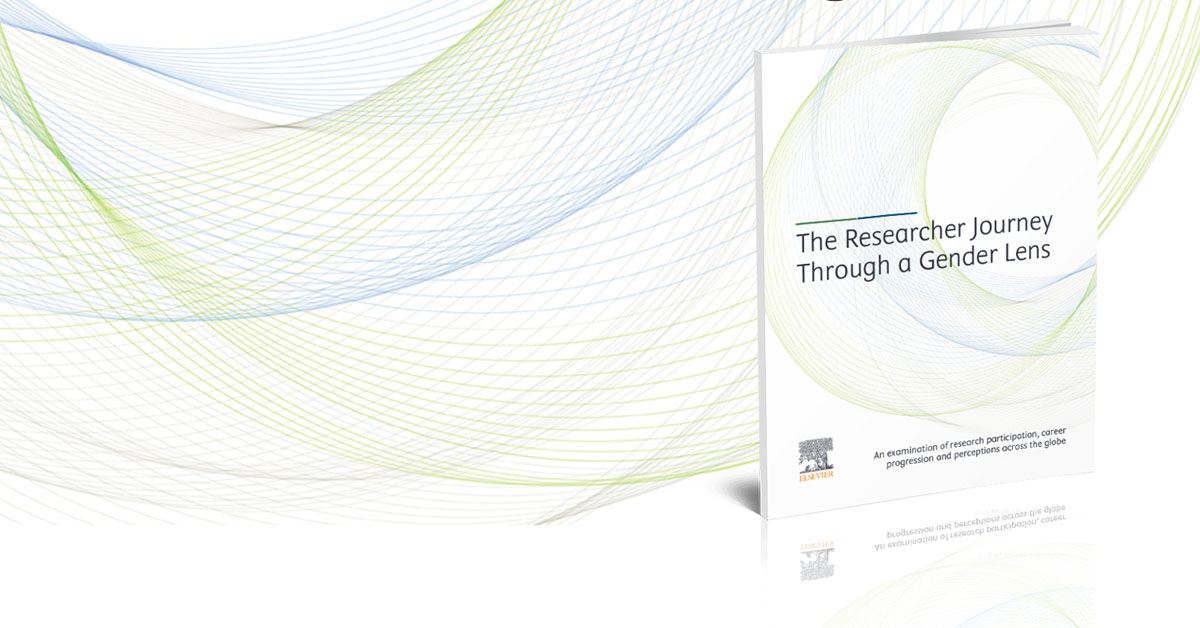Elsevier,
28th October 2021
The drive to curb carbon emissions — and remove carbon from the atmosphere to the point where society is making a “net zero” contribution to CO2 levels — is essentially a scramble to secure our future on this planet. A new report from Elsevier aims to advance the understanding of research and innovation in net zero and how it supports the drive toward a clean-energy future.
Elsevier,
The Lancet, 20th October 2021
The Lancet Countdown is an international collaboration that independently monitors the health consequences of a changing climate. Publishing updated, new, and improved indicators each year, the Lancet Countdown represents the consensus of leading researchers from 43 academic institutions and UN agencies.
Elsevier,
The Lancet Global Health, Volume 9, Issue 4, April 2021, Pages e489–e551
This Lancet Global Health Commission advances addresses SDG 3 directly, and SDGs 1, 2, 4, 5, 8 and 10 indirectly, by comprehensively demonstrating how improving eye health by treating and preventing vision impairment and vision loss can not only advance SDG 3—improving health and wellbeing for all—but also contribute to poverty reduction, zero hunger, quality education, gender equality, and decent work and economic growth. The findings of this report frame eye health as a development issue and highlight that, with a growing ageing population globally, urgent and concerted action is needed to meet unmet eye health needs globally, including incorporating equitable eye care into countries’ universal health coverage plans.
Elsevier,
The Neurobiology of Aging and Alzheimer Disease in Down Syndrome, Volume , 1 January 2021
This book chapter advances SDG #3 and #10 by providing therapeutic strategies that can be employed in clinical trials for AD in DS will be discussed as well as their underlying scientific rationale.
Elsevier,
Lancet Planetary Health, Volume 5, Issue 1, January 2021, Pages e50–e62.
This Personal View addresses SDGs 2, 3, 10, and 12 by exploring the potential consequences of food system innovations in relation to the SDGs. The authors highlight the negative consequences that standalone innovations can have for some sustainability goals, particularly for reducing inequalities and improving social justice. They identify ways in which technical innovations could be embedded in systemic changes to address trade-offs between positive and negative outcomes of their implementation.
Elsevier,
23rd September 2020
By mapping the state of research within each SDG area, this report acknowledges the pivotal role research plays in tackling some of the world’s greatest challenges. It aims to better understand the research community’s global sustainable development efforts and assesses the progress made, as well as unmet research needs.
Elsevier,
The Lancet, Volume 396, Issue 10247, 1–7 August 2020, Pages 301-302
This news report addresses SDG 5 by highlighting how the COVID-19 pandemic has led to a global surge in violence against women and girls. The report highlights that lack of access to sexual and reproductive health services during the lockdown and thereafter could result in up to 7 million unintended pregnancies worldwide, and up to 2·7 million unsafe abortions and 11 000 pregnancy-related deaths.
Elsevier,
The Lancet, Volume 396, Issue 10247, 1–7 August 2020, Pages 301-302
This news report addresses SDGs 3 and 5 by highlighting how the COVID-19 pandemic has led to a global surge in violence against women and girls. The report highlights that lack of access to sexual and reproductive health services during the lockdown and thereafter could result in up to 7 million unintended pregnancies worldwide, and up to 2·7 million unsafe abortions and 11 000 pregnancy-related deaths.
Elsevier,
July 2020
As the world of research moves towards open access, publishers have a further task – ensuring the knowledge gap between the Global North and Global South continues to close. Contributing to SDGs 10 and 17, this paper provides an evidence base supporting practical recommendations towards the equitable and inclusive shift towards open access
Elsevier,
March 2020
Furthering SDGs 5 and 10, this report aims to better understand the role gender plays in the global research enterprise and inspire evidence-based policy driven by powerful data. It examines research participation, career progression and perceptions across the European Union and 15 countries globally in 26 subject areas. The report concludes that while the participation of women in research is increasing overall, inequality remains across geographies and subject areas in terms of publication outputs, citations, awarded grants and collaborations.




